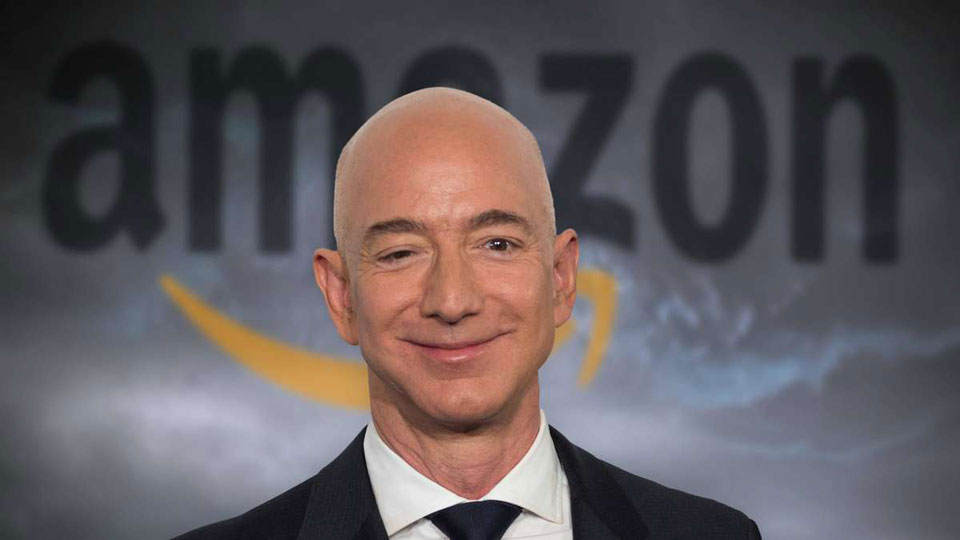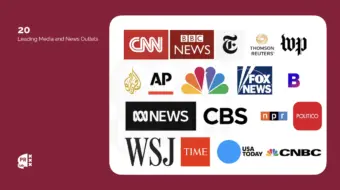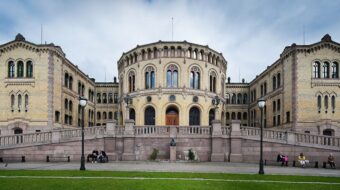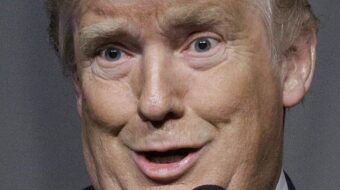
WASHINGTON—If taxes are the “price” we pay to insure government can help provide a civilized and manageable society, then recent reports show top corporations and the ultra-rich are getting society’s services virtually for free while the rest of us pay the freight.
To be precise, the Institute on Taxation and Economic Policy (ITEP) reported 55 of the largest U.S. publicly held corporations, all on the Fortune 500, paid zero or less in income taxes in 2020. Most got refunds.
Together those firms reaped $40.5 billion in pre-tax income and should have paid, according to the tax code, $8.5 billion in federal taxes, at the now-low 21% corporate rate. Democratic President Joe Biden wants to increase the rate, to 28%, to help pay for infrastructure—which would benefit firms as well as the rest of us.
Instead, those 55 paid zip and got $3.5 billion in refunds, combined. And three of them–Nike, FedEx, and Duke Energy—have paid no taxes since GOP Oval Office occupant Donald Trump and the GOP-run Congress enacted their huge 2017 tax cut for corporations and the rich. Combined, those three firms alone earned $18.89 billion in profits starting in 2017 and got $2.845 billion in refunds.
Not to be outdone, the tip of the top 1% of individual taxpayers also avoided paying their fair share, according to the National Bureau of Economic Research (NBER). Their tactics included outright underreporting of 21.8% of their income, and tax shelters for a lot of the rest, its writers added.
That evasion also added up to money…lots of it: “We estimate 36% of federal income taxes unpaid are owed by the top 1%,” said NBER’s researchers, using Internal Revenue Service data. “Collecting all federal income tax from this group would increase federal revenues by $175 billion annually.”
Both reports’ figures may be low.
NBER noted that its data on individuals do not cover income the ultra-rich shelter from U.S. taxes in offshore havens such as the Cayman Islands, and other methods they use to hide their hoards. And data from other income sources, such as real estate, are fuzzy.
“Many of our estimates are likely to be conservative with regard to the overall evasion at the time,” that paper’s authors note, before listing other tax evasion devices their paper could not even touch on, due to the incomplete or estimated figures. “We should expect sophisticated evasion to be concentrated at the top of income and wealth distribution.”
And ITEP told the Senate Budget Committee its report covers only Fortune 500 publicly held firms. It doesn’t include those in private hands or those below that top tier.
Neither report addressed the corrosive impact such evasion and avoidance has on income inequality, and on trust in government. Progressives, led by Sens. Elizabeth Warren, D-Mass., and Bernie Sanders, Ind-Vt., do. “The system is rigged,” Warren frequently declares. Senate rules help rig it, the AFL-CIO adds.
“For decades, working people have paid the price for corporate-first government,” federation President Richard Trumka said on March 11.
Corporations, he added, used the Senate filibuster to preserve and expand their tax breaks. The rules “never hold up billions in bailouts or trillions in tax giveaways. It’s only when working families demand our fair share that those in power hide behind procedure.”
What Trumka did not say, but progressive groups—and some lawmakers–have repeated for years, is that the capitalist system provides corporate moguls with their billions, which they then use to rig politics to further expand their profits. Those kingpins’ cash comes from workers’ productivity.
Sanders said in a recent op-ed that it’s time to tackle the inequality the reports reveal, though his piece preceded their findings. The vehicle, he declared, would be “a second reconciliation bill that deals with the major structural changes that our country desperately needs.
“We must confront the grotesque level of income and wealth inequality and create a country that works for all and not just the few,” he added.
Besides creating jobs, renewing infrastructure, promoting renewable energy, and combatting climate change, that measure must also “make the wealthiest Americans and most profitable corporations pay their fair share of taxes.
“We cannot continue to allow profitable corporations like Amazon to make billions of dollars in taxes and pay nothing in net federal income taxes. And billionaires cannot be allowed to pay a lower tax rate than working-class Americans. We need real tax reform.”
How much it’s needed comes home in charts from the institute, using data from the Organization for Economic Cooperation and Development, the club of the so-called “rich” countries. The charts bring home the point U.S. corporations don’t pay the freight for government services that benefit them, or us.
In 2016, the year before the Trump-GOP tax cut, U.S. firms overall paid an equivalent of 1.9% of gross domestic product in federal taxes, said the chart ITEP Executive Director Amy Hanauer presented last month when she testified to Sanders’s Senate Budget Committee. Among 36 OECD-charted nations, that share was ahead of only Turkey, Poland, Slovenia, and the three Baltic Sea republics.
After the Trump-GOP tax cut, in 2019, U.S. corporate tax payments fell to 1% of GDP, ahead of only Hungary (0.7%), Latvia (0.2%), and Greece (zero).
And it was all perfectly legal, the Institute’s report adds.
“For decades, the biggest and most profitable U.S. corporations found ways to shelter their profits from federal income taxation,” starting with “the Reagan administration’s misguided tax-cutting experiment.
“Now, with most corporations reporting their third year of results under the new corporate tax laws pushed through” by Trump and the GOP, “it is crystal clear” that 2017 law “failed to address loopholes that enable tax dodging—and may have made it worse.”
Last March’s Cares Act—Congress’s first economic stimulus law designed to prevent a total crash due to the coronavirus pandemic and its forced closures—opened up another big loophole, Hanauer said in her prepared testimony.
That law “loosened rules for the treatment of losses not just in 2020, but also retroactively for losses reported in 2018 and 2019, which have nothing to do with the pandemic. Even worse, it allows corporations to carry back losses as far as five years…Taxing profits at one rate while allowing losses to produce savings at a higher rate is an invitation for companies to play games, moving profits and losses around from one year to another on paper to reduce their tax bills.”
The generosity continues, the institute adds, in another report. With the entire country—or so it seems—shipping products by Amazon, renting movies on Netflix, or zooming to Zoom to communicate when face-to-face business meetings and school classrooms had to shut down due to the coronavirus pandemic, profits for the three firms soared. Their taxes didn’t.
“Zoom ’s profits zoomed 4000%–that’s not a typo–in 2020, to $660 million from $16 million the year before,” Hanauer said. Netflix paid 1% of its profits in taxes in 2018, zero in 2019, and another 1% last year, when so many people were forced to rent its films that it garnered $2.8 billion in profits. That’s more than the $2.5 billion it gained in the prior two years combined.
And Amazon, run by the U.S.’s richest man, Jeff Bezos, earned $20 billion last year, that report added. “But the company paid just 9.4% of its profits in federal corporate income taxes, after paying zero in 2018 and about 1% in 2019. Over those three years, combined, it paid federal corporate income taxes equal to 4.3% of its $44.7 billion in profits,” Hanauer testified.
Though Hanauer did not say so, Amazon’s profits don’t trickle down to its workers.
The giant firm pays low wages and often only the federal minimum wage of $7.25 per hour to its hundreds of thousands of “associates.” And Amazon yanked pandemic hazard pay from its frontline warehouse workers after only three months. It also denies the pandemic’s ravages among its employees, admitting only under pressure last November that 20,000 were infected through that month.
That denial, plus Amazon’s profits and Bezos’s wealth, gained from exploiting his employees, has prompted workers at Amazon’s Bessemer, Ala., warehouse, to try to unionize with the Retail, Wholesale and Department Store Union/UFCW. Despite vicious Amazon anti-union tactics, the 5,805 workers, most of them Black, voted by mail through March 29. Results are expected in the near future.
Hanauer made one other point: The tax avoidance is a road map for what to fix.
“The good news is that, as President Biden and congressional leaders signal their intention to revisit the question of corporate tax reform, the breathtaking tax avoidance of these three companies gives policymakers a clear path forward for base-broadening tax reform. If lawmakers want to change this, they need only look to their own handiwork in failing to curb tax breaks in the past,” she testified.












Comments